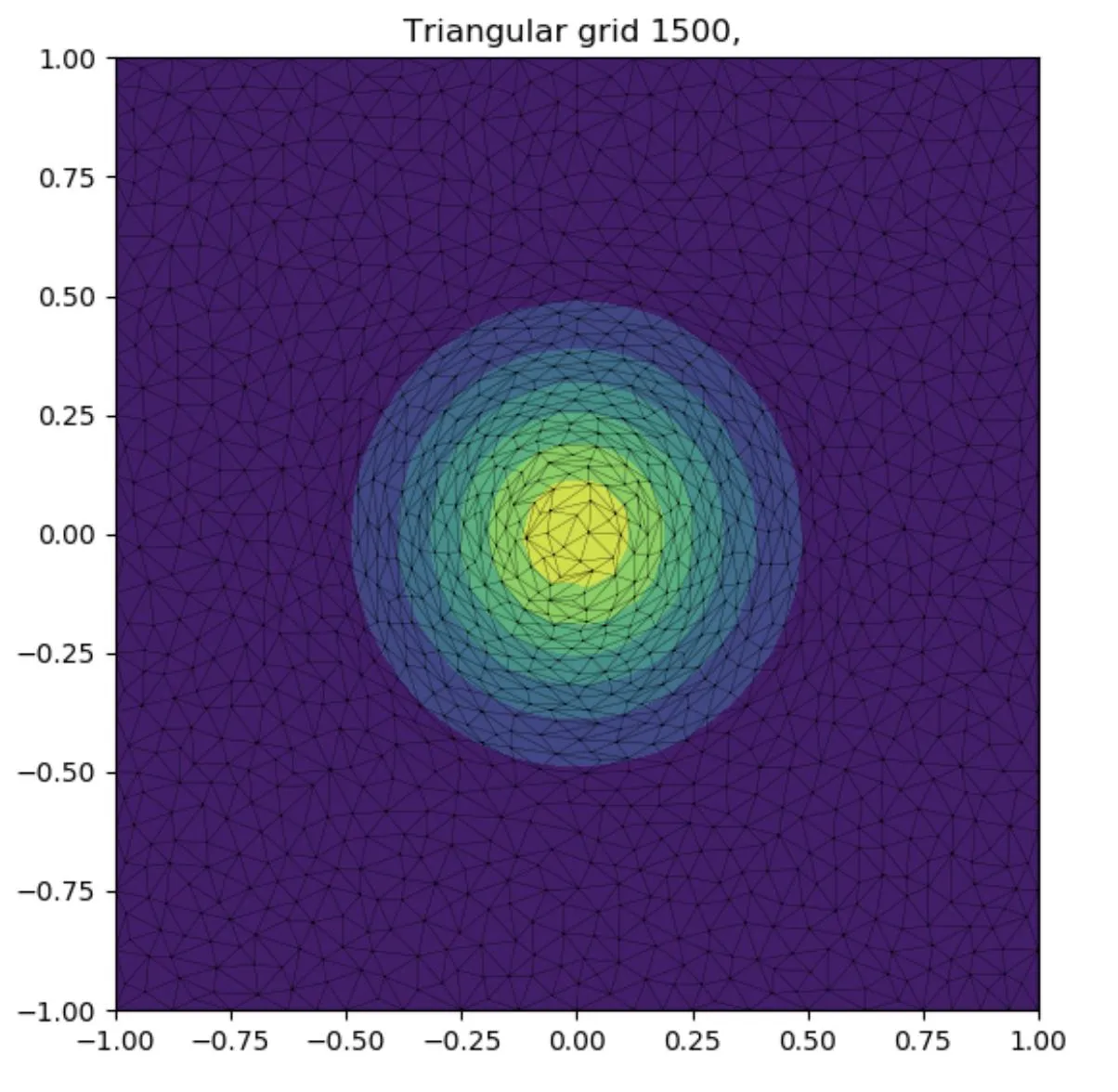我有自己的三角剖分算法(my own triangulation algorithm),它基于Delaunay条件和梯度创建一个三角剖分,使得三角形与梯度对齐。
以下是一个输出示例: 上述描述与问题无关,但在此上下文中是必要的。
上述描述与问题无关,但在此上下文中是必要的。
现在我想使用我的三角剖分与
使用scipy的Delaunay,我会这样做:
这个
我认为我需要继承
以下是一个输出示例:
 上述描述与问题无关,但在此上下文中是必要的。
上述描述与问题无关,但在此上下文中是必要的。现在我想使用我的三角剖分与
scipy.interpolate.LinearNDInterpolator进行插值。使用scipy的Delaunay,我会这样做:
import numpy as np
import scipy.interpolate
import scipy.spatial
points = np.random.rand(100, 2)
values = np.random.rand(100)
delaunay = scipy.spatial.Delaunay(points)
ip = scipy.interpolate.LinearNDInterpolator(delaunay, values)
这个
delaunay对象有delaunay.points和delaunay.simplices,它们组成了三角剖分。我用自己的三角剖分得到了完全相同的信息,但是scipy.interpolate.LinearNDInterpolator需要一个scipy.spatial.Delaunay对象。我认为我需要继承
scipy.spatial.Delaunay并实现相关方法。然而,我不知道我需要哪些方法才能实现这一点。
LinearNDInterpolator还可以接受一个点数组作为其第一个参数。 - Warren Weckesser